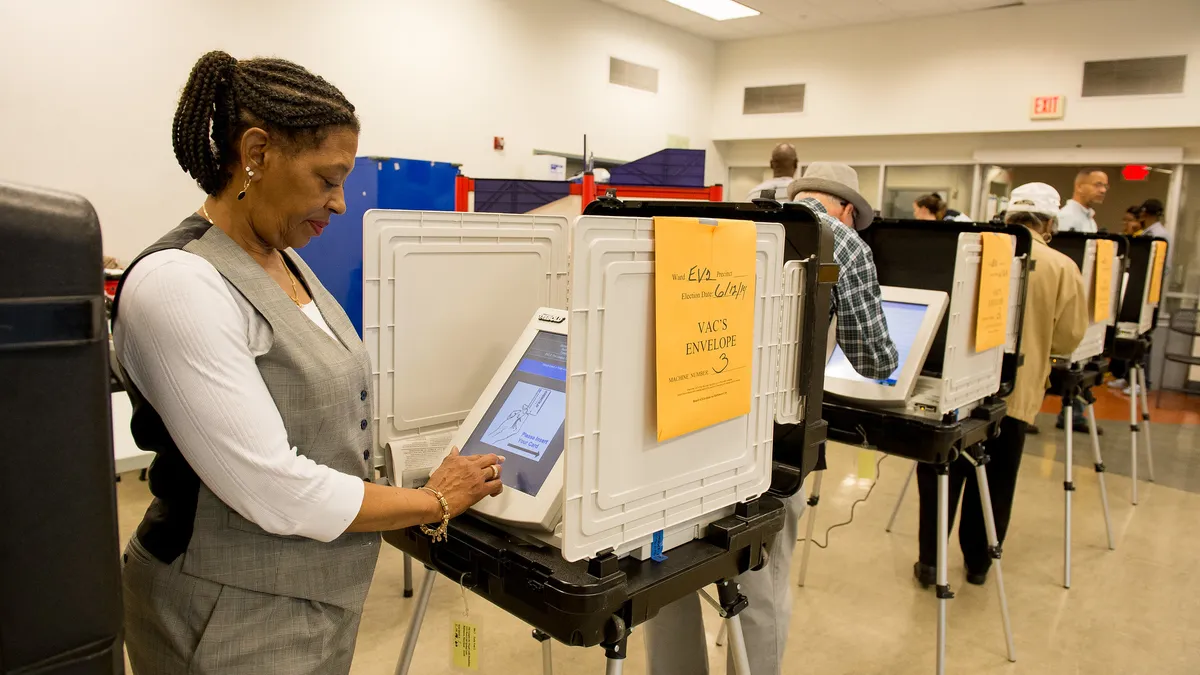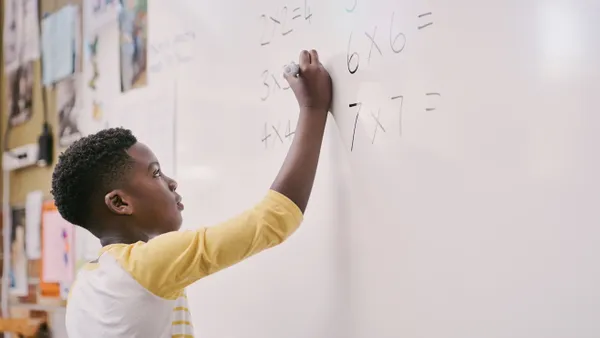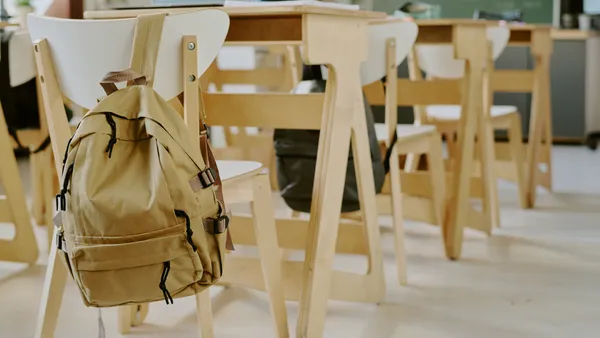Dive Brief:
- High school students in Armonk, New York, researched ways to increase voter turnout among groups prone to voter apathy, including college students and Spanish speaking citizens, launching projects such as Instagram challenges and targeting parent groups on the social media site Facebook. The students are in the Byram Hills High School Global Scholars Program, a program provided in partnership with the nonprofit World Savvy.
- Students sought to improve voter turnout through a design thinking process that included talking to stakeholders, researching evidence, identifying problems and designing an action plan. In the last school year, students worked to increase Westchester County residents’ participation in the 2020 Census.
- To promote voting in the election, students made a Neighbors Link website, created a video with information about local races, launched an “I Voted Challenge” (similar to the Ice Bucket Challenge), and developed an informational video aimed at 18-to-30-year-olds about how to properly fill out an absentee ballot.
Dive Insight:
Evidence-based curricula embedded in real-world problems engages students in ways traditional sit-and-get instruction can miss. Businesses and organizations are looking for team-player employees who can adapt and are critical thinkers. These type of programs instruct students on relevant, real-life issues.
For example, the Ohio Supreme Court’s "Under Advisement: Ohio Supreme Court Cases on Demand" takes students step-by-step through real court cases. Similarly, the two-year Core Plus Aerospace program in Washington gives students real-work experience that prepares them to enter jobs in the aerospace and manufacturing fields.
These types of programs are in high demand, according to a report by the National Governor's Association Center for Best Practices, which looks to narrow the gap between what employers are looking for and the types of skills employees possess. The report recommends building opportunities for students to participate in work-based learning experiences.
The nonprofit District C in North Carolina tackles this problem by matching businesses’ needs with students’ skills. For example, when the North Carolina Museum of History needed its storage area organized, students from Research Triangle High School in Raleigh were assigned to tackle the challenge.
Though organizing the space seemed simple at first, students soon realized the task was riddled with layers of issues and the solution wasn’t so straight-forward. Understanding that they needed to be adaptive and all-encompassing when pitching solutions was a lesson they could take with them well into their careers.













